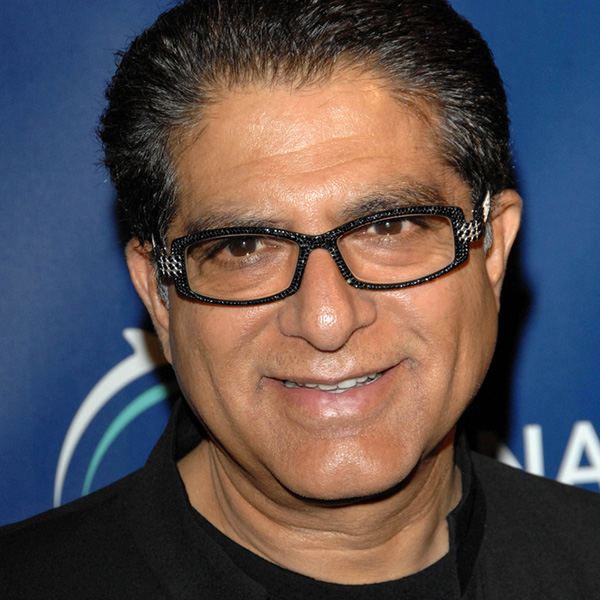Brain-Boosting Tips From Deepak Chopra
 Deepak Chopra photo via s_bukley/Shutterstock.com
Deepak Chopra photo via s_bukley/Shutterstock.com
As each dreary winter day blurs into the next and your holiday season to-do list grows longer and longer, it’s easy to submit to the stress of it all. That considered, there’s no time like the present to gift yourself with a makeover—a brain makeover. Enter Deepak Chopra, the holistic guru who was once chief-of-staff at New England Memorial Hospital (now called Boston Regional Medical Center), and Dr. Rudolph Tanzi, Harvard Medical School professor who specializes in Alzheimer’s disease and heads the Genetics and Aging Research Unit at MGH. They teamed up to co-author Super Brain in order to show us how to unleash the power of our minds.
The two doctors met in a bathroom. Yes, really, in a bathroom at the TEDMED conference in 2010, when Chopra asked Tanzi if the brain was a noun or a verb.
“It’s a verb, of course,” responded Dr. Tanzi. The rest is history.
They told us their brain-boosting tips that we can all apply this season:
1. Your brain is not a fixed object.
- “Every time you learn something new, you make a new synapse, and when you learn something new, it’s always based on something you already know,” Tanzi says. “That’s how the brain works. It’s layering and layering itself.”
- “All your genes are present in bacteria. They’re present in bananas,” Chopra says. “With technology and social media, our brains are evolving, and I’m not talking about evolution as a metaphor. Our neural networks are literally evolving. Kids know how to play video games, their neural networks are hardwired in completely different ways. So we can learn to hardwire our brains in ways that create personal wellbeing.”
The takeaway: Your brain is a powerful thing and can be hardwired for change; and don’t be a banana.
2. There’s a good chance you’re not doomed to suffer from an age-related illness.
- “Less than three percent of age-related illnesses, and that includes Alzheimer’s, are due to a [genetic mutation] that you’re born with,” Chopra says. “The rest of our entire genome, which is 23,000 genes, is actually influenced by experience. So you can have identical twins, and they’ll have the exact same genome, and 20 years later, you’ll find a completely different genomic expression.”
- “One of the biggest misconceptions about Alzheimer’s is that if you have a family history, you’re going to get it,” Tanzi says.“Lifestyle can make a difference regarding risk.”
The takeaway: You are not doomed. Improve your lifestyle and decrease your risk for age-related illness.
3. You can think yourself out of a mild seasonal funk or a holiday panic.
- Though Dr. Tanzi wants to make it clear that some types of depression require medication, for the average person suffering from a bit of a blue spell, better moods are well within the brain’s reach. The key, both doctors agree, is mental awareness. This entails regularly checking in on your emotions, acknowledging them, and letting them go. This is, of course, easier said than done for some, but the good doctors have tips for simplifying the process.
- Entering an anxiety spiral, for example, is optional, Chopra says. “I like to use an acronym: STOP. S – stop, T – take a few deep breaths and smile, O – observe what’s happening with your body, and P – proceed with kindness, compassion, and joy.”
- Chopra adds that sometimes, it won’t be easy to identify what you’re feeling or why, and that that’s OK, too. Practice, as it often does, makes perfect.
What is Tanzi’s personal tip for checking in with himself and regulating his moods? “I check my cell phone so much, like a lot of people, that every time I check it, I ask myself, ‘How do I feel right now? What am I thinking?’”
It’s definitely something to consider, because you certainly checked your phone while reading this article.
What are mood boosting tips this holiday season? Tell us in the comments!


